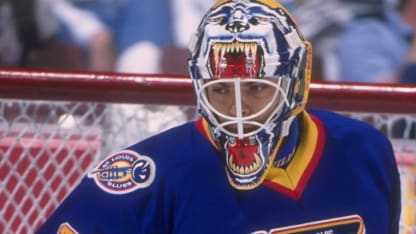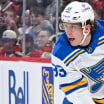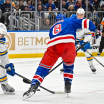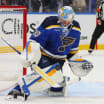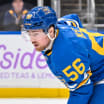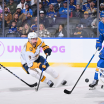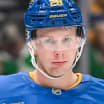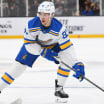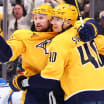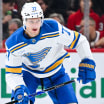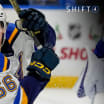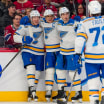BLUES: How has the game changed today from when you played the game, as far as goaltending is concerned?
JOSEPH: There isn't a goalie under 6-foot-2 nowadays, so they wouldn't look at me as a prospect anymore at 5-foot-11. Goalies are bigger and their technique is flawless, it really is. The goalie coaches and the equipment changed the way goaltending was played. I saw the evolution, and I had to change my game at 35 years old too, for the better, to keep myself in the League. I had to go back to goalie school. And now there's no clutching and grabbing and now there's no fighting. It really has changed, I watched it happen. It's a highly-skilled game, it's wonderful to watch, but I do miss the tough guys. Me, Chaser and Twister wouldn't be in the League (today).
BLUES: You wrote a book about your life and hockey career with Kirstie McLellan Day, who has written six national bestsellers. What was the process like of sitting down and choosing what stories should go into the book?
JOSEPH: We started at the beginning and it took us a year to do. Kirstie is a wonderful human being and a great storyteller. We'd sit down and say "we're only going to go an hour today" and we'd go five hours, just conversation. The book reads like that - it's a conversation, really easy to read. She got all my thoughts down. Some of it was hard as far as the childhood, but the idea is to help people - don't be a victim, be victorious. Some things are stacked against you, everybody has things that are going to go against them, but its just about perseverance. I was a glass-half-full kind of kid and everything kept getting better. Hopefully young people will take away some perseverance and some inspiration.
BLUES: What kinds of things will we learn about you by reading the book? Is it primarily about your hockey career, or will we learn a lot about you personally, too?
JOSEPH:Yeah, there's personal stuff, and how I made it to the NHL. It's a very unlikely - a tremendously unlikely - story. I was a small kid that played Single-A hockey. I started at 10 years old so I was five or six years behind everyone else, so I had to be a goalie. I couldn't skate.
